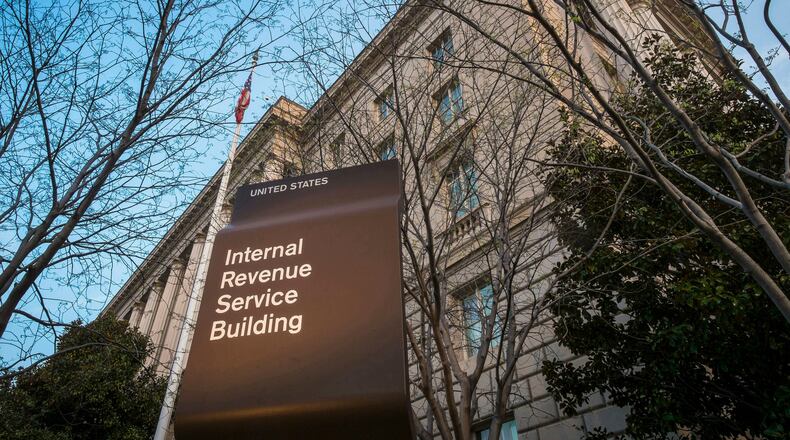More than 850 people responded to a Dayton Daily News online survey about problems they were seeing with the stimilus distribution. Dozens of people told us they have not received economic impact payments (or stimulus payments) because evidently the money was sent to closed or unfamiliar accounts and they don’t know what to do other than wait for a paper check in the mail.
Many of these people said they used tax preparation companies and received 2018 or 2019 tax refunds on debit cards.
MORE: Stimulus payment problems in Dayton region: too much, too little, few answers
Financial services company MetaBank recently said the IRS inadvertently distributed some stimulus payments to consumers' temporary bank accounts for standard tax refunds.
“It was an error to send these (economic impact payments) to these accounts,” the company said. “The IRS has not explained to us why this error occurred.”
Tax preparation companies say they are not allowed to receive customer funds directly so they use service banks that create temporary bank accounts.
The banks separate tax preparer fees and any advanced funds the taxpayers received in the form of loans and then forward along the remaining balance to the tax filers via direct deposit or a debit card, according to tax preparers.
Temporary accounts are closed immediately once the money is transferred to taxpayers, so they did not exist when the IRS attempted to send some stimulus payments.
MORE: As traffic violations plummet, people driving 100+mph increase on Ohio roadways
IRS created confusion by not always using clients’ final destination bank account information for stimulus payments, said H&R Block.
The company said the IRS has bank account information for all its clients who received tax refunds electronically, and the agency is determining when and how to distribute stimulus payments.
“We share our clients’ frustration that many of them have not yet received these much-needed payments due to IRS decisions, and we are actively working with the IRS to get stimulus payments sent directly to client accounts,” the company said.
H&R Block says it is processing payments as soon as they are received, including depositing any payments made to Emerald Cards.
The company says it will reissue cards so clients can get their stimulus payments.
The IRS says banks will reject stimulus payments to accounts that are closed or no longer active.
If the IRS has incorrect banking account information or if a financial institution rejects the direct deposits, payments will be mailed out to Ohioans at the addresses the agency has on file.
The IRS says stimulus payments will be made throughout the rest of 2020.
Ohioans who do not receive payment this year can also claim it by filing a tax return for 2020 next year.
Jackson Hewitt and some other tax preparation companies say they have not and will not receive funds from the IRS to distribute to taxpayers.
Taxpayers should go to IRS.gov to find their payment status and update their direct deposit information, Jackson Hewitt said.
Clients whose stimulus funds were deposited into active American Express Serve or Bluebird Cards can request replacement cards online, the company said.
How to file
Today (April 22) is an important deadline for some recipients of federal benefits who have children.
Social Security recipients who didn’t file a tax return in 2018 or 2019 need to act by noon today to claim children in order to receive a full economic impact payment.
Other federal benefit recipients with children who need to act include those receiving Supplemental Security Income (SSI) or Veterans Administration benefits and who weren’t required file a tax return in 2018 or 2019.
Economic impact payments worth $1,200 will be issued to beneficiaries soon, and the IRS says it needs their dependants’ information to calculate full payments. Citizens are eligible for an additional $500 per child.
If benefit recipients do not provide information to the IRS by noon today using its "non-filers" tool on its website at IRS.gov, they will not receive payments for their dependants until a return is filed for tax year 2020, the agency said.
About the Author

